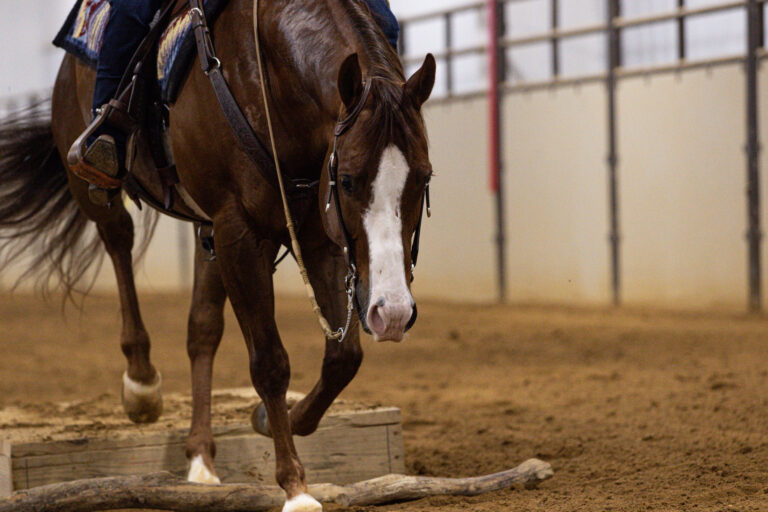Your horse can ingest sand or other particles of earth if he grazes on too-sparse pasture or eats hay off the ground. The results can be diarrhea and chronic weight loss, as well as colic. Treatments for sand accumulation in the gut range from administering bulk-forming laxatives to surgery for the removal of large amounts. Prevention is key! Turnout on grass and feeding free-choice hay both help to keep everything moving through and out of your horse’s GI tract.
[RELATED: Enterolith – A Common Colic Culprit]

GI system. AdobeStock
Feed Safely
Keep it clean: Make use of hay nets or slow feeders to keep hay from getting strewn on the ground.
Put mats down: For extra protection, place rubber mats under where your horse eats hay or grain.
Provide salt: Provide salt, as a lack of it can cause horses to eat soil in a search for sodium.
Consider Psyllium

If, despite other preventive measures, you’re still worried about sand, ask your veterinarian about the periodic feeding of a psyllium supplement to help clear out your horse’s intestines. If you do use a psyllium product:
- Follow directions precisely.
- Don’t wet the product—it’ll get sticky.
- Provide plenty of clean, fresh water.
Fecal Sand Float
To check for sand, place six of your horse’s fresh, uncontaminated fecal balls in a pail, cover them with about a quart of water, stir, and allow to sit for 15 minutes. If more than a teaspoon of sand settles to the bottom, check with your vet for advice.
[RELATED: Colic Prevention Checklist]






